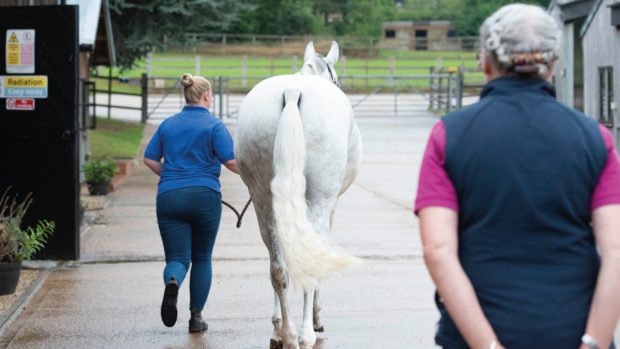Q: Last year my horse needed colic surgery costing £5,000 – yet my insurance policy was capped at £2,500.
With increasingly expensive veterinary treatments now available, why has insurance cover not risen too?
LD, Shropshire
According to Professor Tim Greet of Rossdales Equine Hospital in Newmarket, this issue affects all institutes offering in-depth equine diagnostic and surgical services, and applies to many surgical treatments.
“In the UK, horse owners and their vets are fortunate that a number of companies insure against expenses incurred in the veterinary treatment of their animals,” Tim explained.
“However, as veterinary fees have gradually increased, the maximum amount of cover has not increased to match it.
“A decade ago, £5,000 – the maximum amount of veterinary fee cover generally seen – would have covered almost every diagnostic or surgical eventuality imaginable. However, due to rising costs and advances in technology, this is no longer the case. Realistically, many patients requiring more complicated diagnostic investigations or surgical treatments, will end up overrunning the amount that can be reclaimed,” he said.
We also asked David Ashby of equine insurers, Amlin Plus, for his opinion.
“Obviously, insurers set terms and limits to what they offer clients, but these days £2,500 is a policy limit that will often only soften the blow of a serious problem, such as a condition requiring colic surgery, and not meet the full costs.”
David suggests it would be helpful if insurance companies and brokers pointed out the potential veterinary costs to clients before coverage is bought.
“While as specialist insurers we can insure vet fee policies to virtually any amount, and sometimes get asked for a £10,000 limit on vet fees by people who have already suffered the financial effect of colic surgery, many people shop around for the cheapest premium and not for the best coverage,” he said.
“However, from a different viewpoint, some vets should pass horses to a referral centre without completing any diagnostic work first that would only be repeated – and charged for again – at the referral centre. This means the regular attending vet may lose fee income, but the client will have a policy that will cover a larger proportion of the veterinary work involved.”
Information
Amlin Plus, tel: 020 7423 0920 www.amlinplus.co.uk
Rossdales Equine Hospital, tel: 01638 577754 www.rossdales.com
Looking for horse insurance? Try Horse & Hound’s insurance comparison service at horseandhound.co.uk/insurance
This article was first published in Horse & Hound (5 February, ’09)




